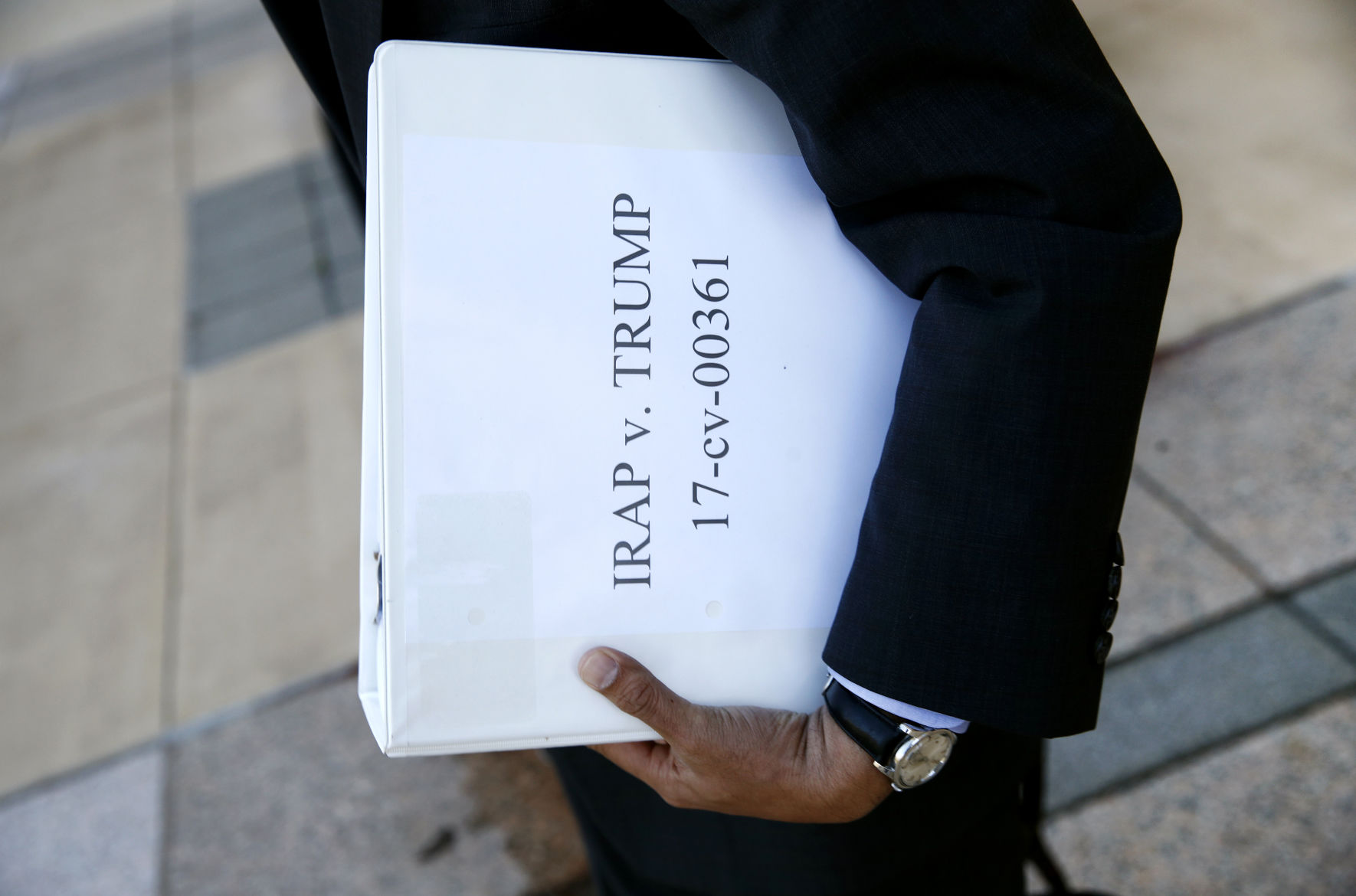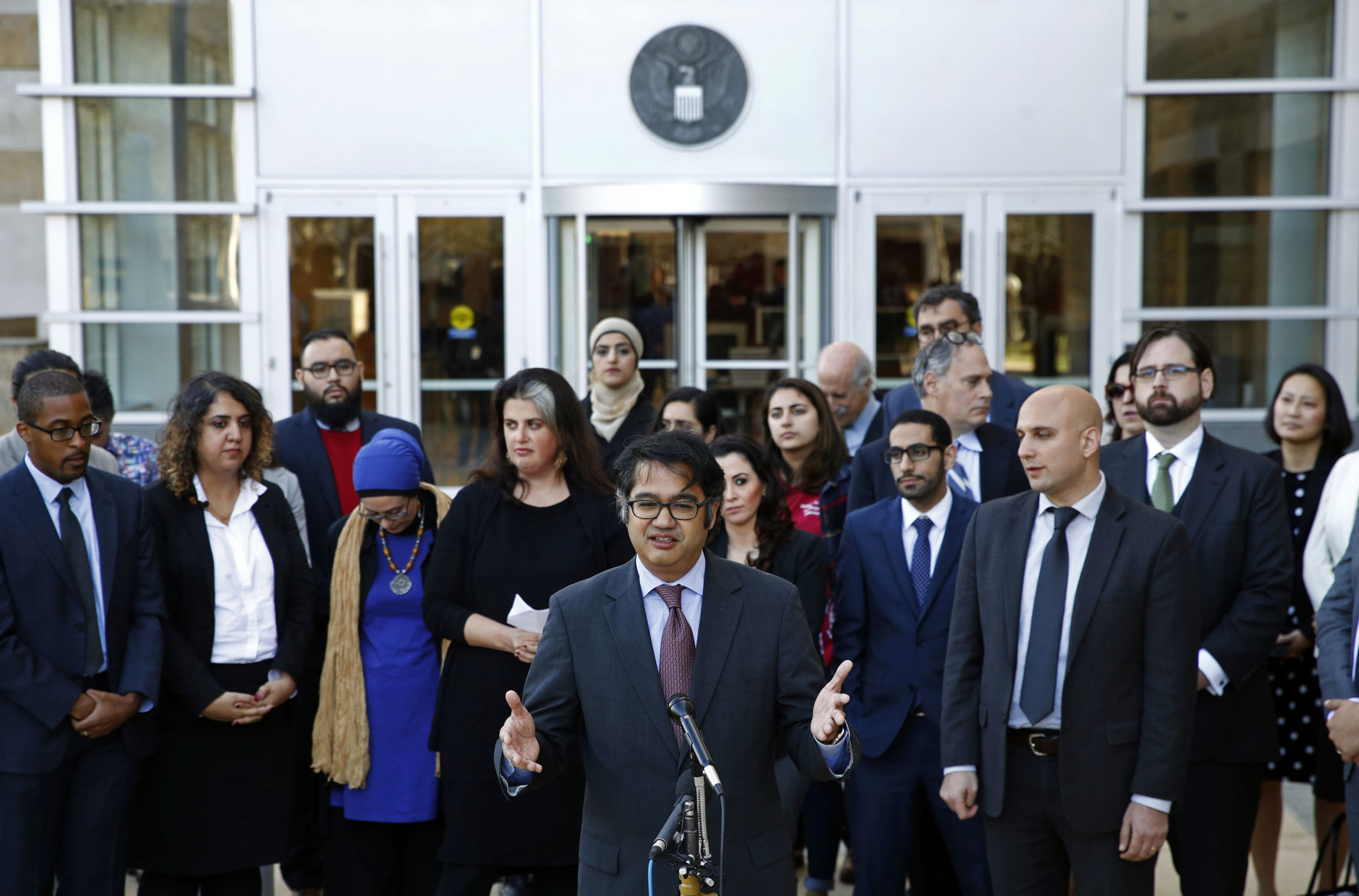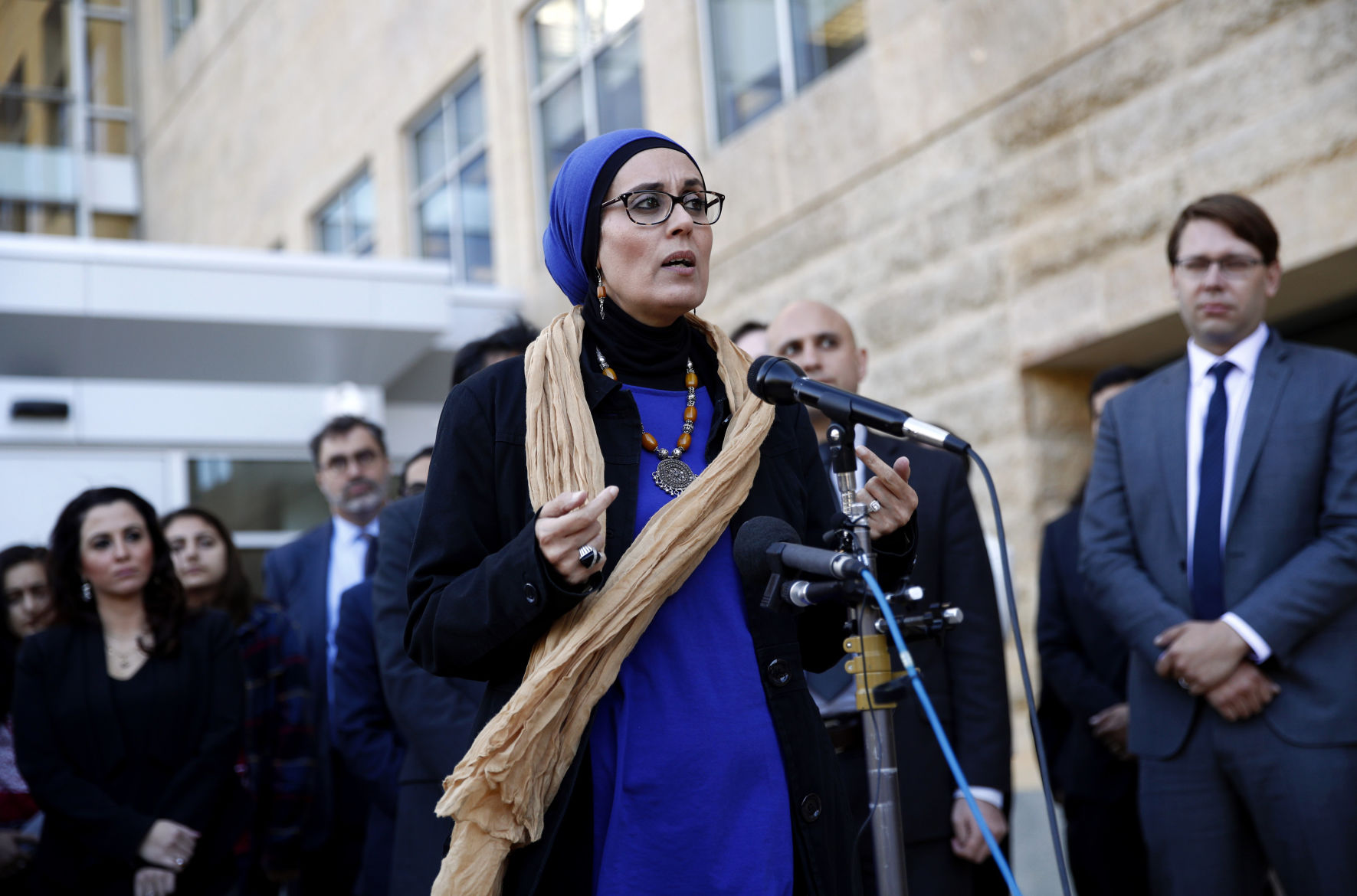GREENBELT, Md. (AP) — A federal judge in Maryland heard arguments Monday for and against the most recent Trump administration travel restrictions, but didn’t rule from the bench. A hearing was held before U.S. District Judge Theodore D. Chuang, who
GREENBELT, Md. (AP) — A federal judge in Maryland heard arguments Monday for and against the most recent Trump administration travel restrictions, but didn’t rule from the bench.
A hearing was held before U.S. District Judge Theodore D. Chuang, who blocked a previous version of President Donald Trump’s revised travel ban targeting six predominantly Muslim countries.
Three lawsuits challenging the new ban argue that restricting travel for citizens of predominantly Muslim countries violates the U.S. Constitution.
The Trump administration in September announced the most recent restrictions, which affect citizens of Chad, Iran, Libya, North Korea, Somalia, Syria and Yemen — and some Venezuelan government officials and their families. They’re to go into effect Wednesday.
Four attorneys argued Monday that the most recent version of the Trump administration’s travel restrictions is, at its core, a Muslim ban, despite the addition of two non-majority Muslim countries.
Omar Jadwat, an attorney for the American Civil Liberties Union, called the restrictions “a bigger, tougher version of the same ban” that Chuang blocked previously.
“It excludes over 100 million people, and it actually makes it worse by extending the ban indefinitely,” Jadwat said.
Trump’s Sept. 24 proclamation outlined the new restrictions. Administration officials said the latest version resulted from a lengthy process, based on an objective assessment of each country’s security situation and its willingness to share information with the U.S. about travelers.
The first ban sparked chaos at U.S. airports in January and numerous challenges in courts across the country. The administration issued a temporary order following those legal setbacks. The prior ban included Sudan, but didn’t include Chad, North Korea or Venezuela.
The new measures range from an indefinite ban on visas for citizens of Syria to more targeted limitations. Iranians, for example, won’t be eligible for immigrant, tourism or business visas, but remain eligible for student and cultural exchange visas if they undergo additional scrutiny.
Deputy Assistant Attorney General Hashim Mooppan said the countries were selected after a “months-long review” and recommendations from the U.S. Department of Homeland Security and the U.S. State Department. However, he refused to provide any details about report’s contents, or give a definitive answer to the judge about whether or not its findings and the proclamation differ in any substantive way. Mooppan emphasized that the restrictions are not discriminatory.
“There’s not a shred of evidence, not a shred of evidence, that Department of Homeland Security or the secretary of state has any animus,” Mooppan said, adding that the restrictions are also meant to put pressure on foreign governments to improve their information-sharing efforts.
“There is strong evidence that this isn’t some sort of Muslim ban in disguise,” Mooppan said.
The judge questioned attorneys on both sides, asking about limitations to Trump’s authority over immigration matters.
Chuang did not say when he’d issue his ruling.
Meanwhile, a federal judge in Hawaii is also weighing a motion to block the restrictions.
Gadeir Abbas, senior litigation attorney for the Council on American-Islamic Relations, said at a news conference following the hearing that the proclamation “is fooling no one.”
“The fact that this executive order is slightly different than the previous executive orders does not eliminate the clarity of the issue, and the clarity of the issue is that Donald Trump sought out to discriminate against Muslims and stigmatize Islam, and he has, in fact, done that,” he said.




